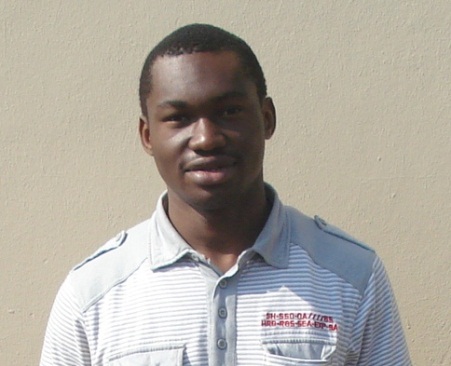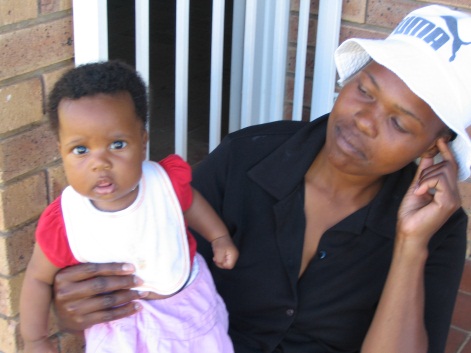
CCJ is presently placing renewed emphasis on research, restoring a focus that characterised the Centre in the early 90s (see History). In the last thirteen years, research has been focused on refining the outreach program: by recording and analysing data, the CCJ has identified trends, successful methods and barriers relating to service delivery and access to justice.
The aim now is to attract and fund researchers to use CCJ’s library and case database for wider research, thereby contributing to academic learning at the university on a range of subjects, such as the role of support centres in providing access to justice and the implementation of national legislation.
(Right) The CCJ library
The Research Program aims to:
• Conduct and publish research on the activities of the outreach program, focusing on improving its services
• Advocate for the reform of law, policy or practice based on research findings
• Attract researchers from in and outside the university to work at the CCJ on topics ranging from sociology to local government
• Contribute to teaching at the Faculty of Law on issues relating to the outreach program
The basis for research is the computerised data system that holds more than 65,000 cases containing valuable primary information. Three data capturers are constantly transferring cases, which are recorded by hand in support centres, onto the database.
The Centre is aiming to attract researchers from within the university and elsewhere in South Africa. Two students completed their Masters at CCJ in 2011, and fundraising is in place to support research fellowships for both short and long-term periods,
| In 2011 Timothy Obaje completed a Masters on the challenges and benefits of networking when implementing labour laws, using CCJ as a case study. For his Masters, also completed in 2011, Uduak Johnson wrote a critical analysis of the purposes and uses of monitoring and evaluation, again using the CCJ as a case study. |


Uduak Johnson Timothy Obaje
Research Opportunities
Apart from criminal justice, a range of wider research areas flow naturally from the daily work of the support centres: family law, maintenance, labour and social security matters, children’s rights, HIV/AIDS, dispute resolution, the interaction of European and customary African law, how long it takes for laws to be implemented and affect people, and the problems people experience at service points. CCJ’s cases offer valuable primary data for students of anthropology, social sciences, psychology, government and law, as well as policy makers.
CCJ has started contributing to university learning: CCJ’s curriculum for the introductory LLB course, ‘Access to Justice in SA’, and a final year elective module, have been approved by the Faculty and teaching has commenced in 2011. As part of this, students will visit support centres and be mentored by coordinators.
 Some examples of research are the evaluations which the Centre has conducted every three years since the outreach program started: "Documenting the first four years of the Community Outreach Programme 1997 - 2000" ,"The Second Evaluation 2001 - 2003", “The Community Outreach Programme 2004 – 2006”, and the 2006 Impact Study . These analyse trends in crimes, the impact of services, staff record-keeping and reporting, and set standards for performance. They consider whether the support centres are fulfilling their intended purpose, and identify successful practices to implement in the poorly performing offices.
Some examples of research are the evaluations which the Centre has conducted every three years since the outreach program started: "Documenting the first four years of the Community Outreach Programme 1997 - 2000" ,"The Second Evaluation 2001 - 2003", “The Community Outreach Programme 2004 – 2006”, and the 2006 Impact Study . These analyse trends in crimes, the impact of services, staff record-keeping and reporting, and set standards for performance. They consider whether the support centres are fulfilling their intended purpose, and identify successful practices to implement in the poorly performing offices.
Future research could have a wider impact, as the findings may provide a foundation for advocating improvement on a national level in the justice system, the provision of social services and other aspects of service delivery.
Other Resources
The CCJ resource centre contains a variety of material, such as its legal series booklets and fliers, books and research documents on local and international subjects, videos, newsletters, CD-ROM, reports, training manuals, archive documents, posters, pamphlets, media articles, statutes and educational materials.
If you are interested in conducting research at the CCJ, contact us at robinsni@ukzn.ac.za
Student Internships
CCJ uses the services of university students, both local and international, who join the organisation as int erns. These students contribute by:
erns. These students contribute by:
assisting with research and documentation
participating in the outreach activities of the support centres
collecting and capturing data
assisting with training workshops for community members
If you are interested in being an intern at CCJ, please contact us at robinsni@ukzn.ac.za
(Right) An intern from the University of KZN receives training at a support centre
We have recently begun a mentoring program for law students. If you are interested in learning about the work of outreach coordinators and being mentored by them, email us at robinsni@ukzn.ac.za
Foreign Student Inspired by CCJ Outreach Work
As a German law student specialising in human rights, ANGELIKA PIECHULEK recently spent three months at the Centre for Criminal Justice.
“When the Director of CCJ, Winnie Kubayi, invited me to join her during her visits to all the Outreach Support Centres, I was delighted. I had already been at the CCJ Head Office for two weeks and had read through most of the leaflets, brochures and information materials available as well as attended meetings in which different issues of the CCJ were discussed, but I still hadn’t been introduced to the widely spoken of Outreach Support Centres.
My first visit was to the Osizweni Support Centre, which required an early start at 6 a.m. Not being an early riser, the first week took its toll, but the experiences and observations I had the chance to make far outweighed the pain of getting up at this ungodly hour.

I consider myself very lucky to have had the opportunity to get to know all the coordinators. I was stunned by the warm welcome they gave me, especially in Estcourt, where I celebrated my 29th birthday and the patience with which they answered all my questions. But most of all, I was impressed by their capability to deal with the often very tragic lives and problems of their clients. It takes a lot of strength and courage to do this job, day after day, and never become discouraged.
I observed that this work requires that coordinators refer to their own life experiences and listen to their clients carefully in order to understand their sometimes confused stories, as well as filter out the important facts.
What struck me is the coordinators’ ability to help their clients holistically. Coordinators do not only deal with the problem the client has come to them with. Rather, the coordinators consider the whole person and their own unique social background and life experience, overlapping emotions and different needs. Each case is as individual as the person, so there is no “ready-to-go” or easy answer. It is because of this that I feel the coordinators are courageous. Dealing with clients in this way requires deep compassion and understanding.
In some aspects, my observations gave me a new understanding of my own profession as a lawyer. In Germany, we focus mainly on the legal issues which need to be attended to and we try very hard to separate this from the persons involved, to make it more neutral and see it without emotions. Through Winnie and the coordinators, I have learnt that it is not always about giving the correct legal advice (although that this is not to be underestimated and definitely desirable), but also about inspiring a desperate client. Often clients need renewed self-confidence and the belief that justice will be served in order to hope and continue after a traumatic experience.
I also was very impressed by the idea of mediation which is practised strongly by the coordinators. In this area, the CCJ is definitely leading Germany. Our parliament only recently discovered (and made it law now before every civil court proceeding) that a successful mediation is not about being “weak” or a “foul compromise”, but about making both parties reasonably happy and attempting to solve problems through dialogue. It saves time, money, a lot of anxiety and emotions, and is definitely a longer-lasting solution. I think that the CCJ and its structure of the Outreach Support Centres is a fascinating concept and fits superbly into the infrastructure of South Africa. It furthermore meets the needs of the rural areas by not only helping when a crime or injustice has been committed, but also by offering workshops, leaflets, brochures and education to prevent such things from happening in the first place.
Because of all this, I learned that the work of the coordinators is precious and unique. They have one of the most difficult jobs: interacting with people and supporting others during a sometimes traumatic time in their life. Thank you!”
The author Angelika Piechulek studied law at the University of Mannheim, Germany. As she specialises in human rights, she was able to serve three months of her articles with the Centre for Criminal Justice.